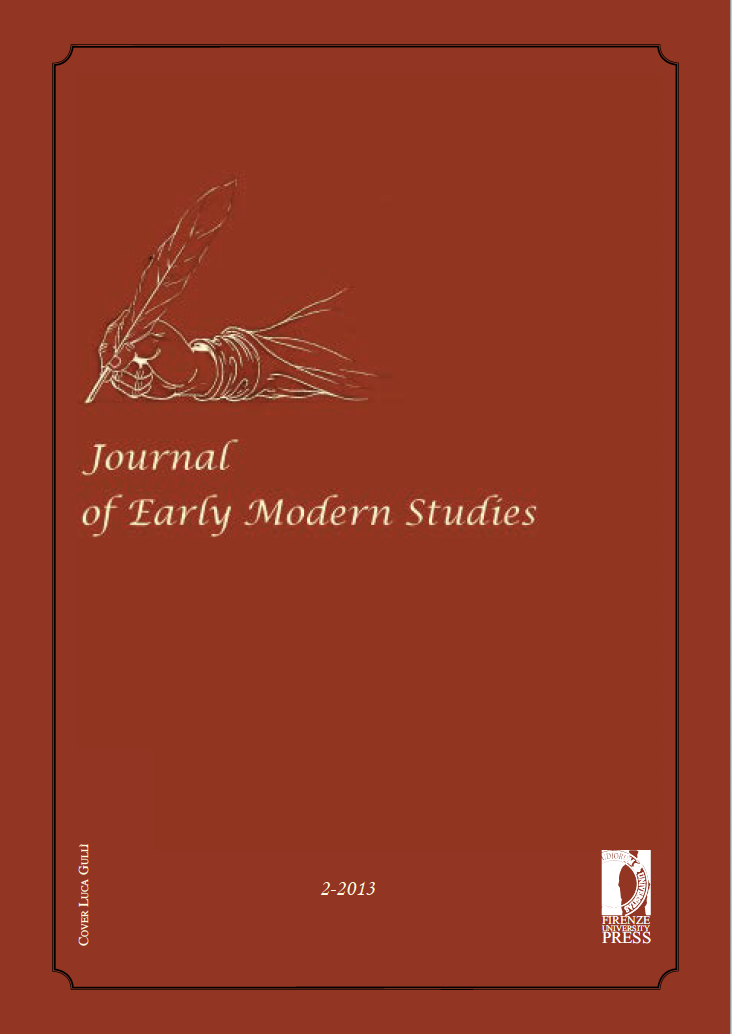Abstract
The article aims at showing how Shakespeare relied on the medical vocabulary shared by his coeval society, which had, for centuries, been witnessing the continuous process of vernacularization of ancient and medieval scientific texts. After outlining the state of early modern medicine, the author presents and discusses the results of her search for relevant medical terms in nine plays by Shakespeare. In order to do this, a wide range of medical treatises has been analysed (either directly or through specific corpora such as Medieval English Medical Texts, MEMT 2005, and Early Modern English Medical Texts, EMEMT 2010), so as to verify the ancestry or the novelty of Shakespearean medical words. In addition to this, the author has also built a corpus of word types derived from seventeenth-century quack doctors’ handbills, with the purpose of creating a word list of medical terms connected to popular rather than university medicine, comparable with the list drawn out of the Shakespearean plays. The results most stressed in the article concern Shakespeare’s use of medical terminology already well known to his contemporary society (thus confuting the Oxfordian thesis about the impossibility for William Shakespeare the actor to master so many medical words) and the playwright’s skill in transforming – rather than inventing – old popular terms. The article is accompanied by five tables that collect the results of the various lexicographical searches.


